Buy 7300 Trailer Refrigeration Unit
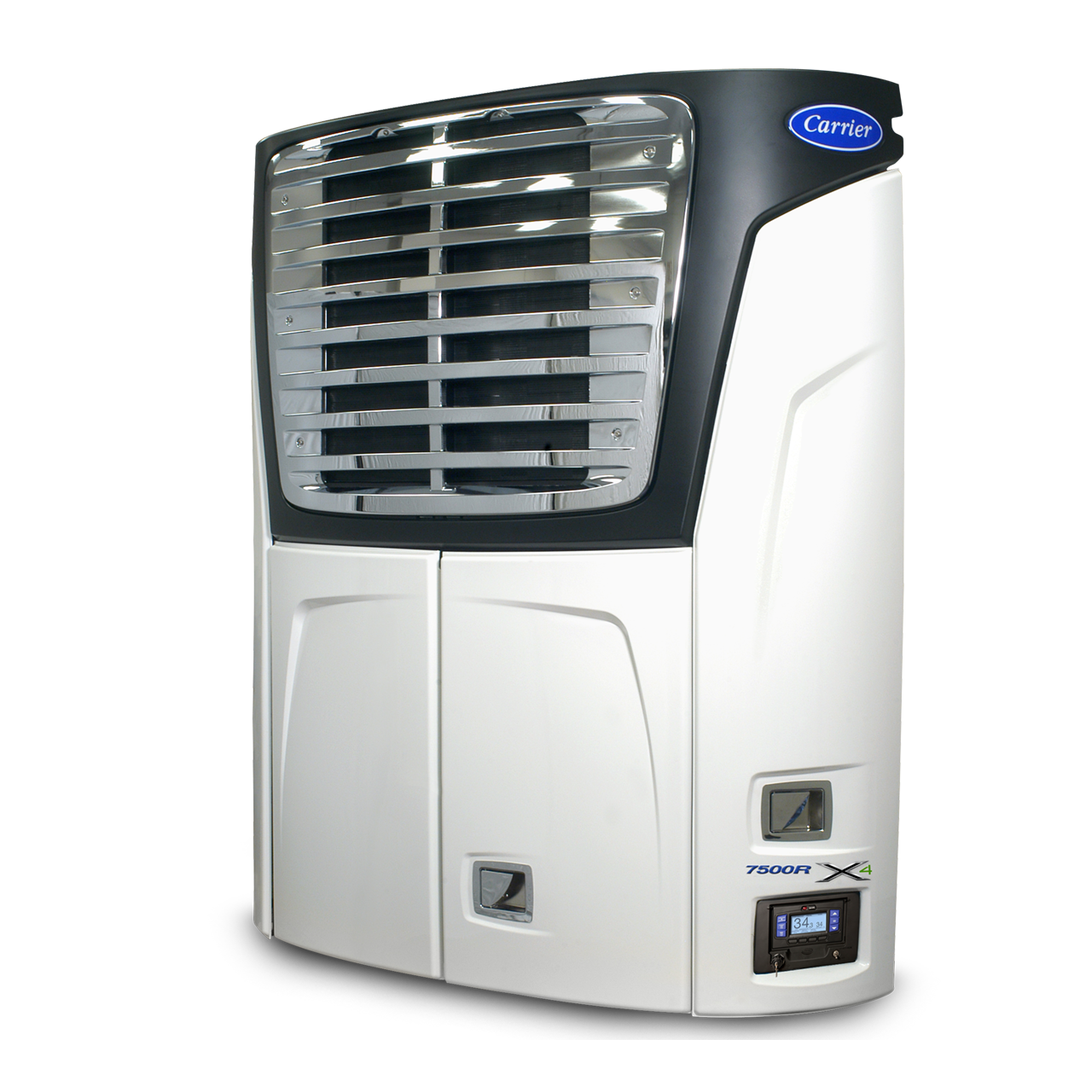
Overview of the X4™ 7300 Trailer Refrigeration Unit
The X4™ 7300 Trailer Refrigeration Unit (TRU) is a flagship offering from Carrier Transicold, a global leader in transport refrigeration solutions. Built on the proven X2™ platform, the X4™ series, including the 7300 model, represents a leap forward in refrigeration performance, efficiency, and reliability for trailers transporting perishable goods. Introduced as part of Carrier’s commitment to innovation and sustainability, the X4™ 7300 is tailored for demanding applications, delivering exceptional cooling capacity, fuel efficiency, and compliance with stringent environmental regulations.Buy 7300 Trailer Refrigeration Unit
This unit is primarily designed for single-temperature trailer refrigeration, making it ideal for transporting goods like fresh produce, frozen foods, pharmaceuticals, and other temperature-sensitive cargo over long distances. With a cooling capacity of up to 66,000 BTUs (British Thermal Units) at AHRI (Air-Conditioning, Heating, and Refrigeration Institute) rating conditions, the X4™ 7300 outperforms its predecessors while incorporating advanced technologies to reduce operational costs and environmental impact.Buy 7300 Trailer Refrigeration Unit
Key Features and Specifications
1. High Refrigeration Capacity
The X4™ 7300 delivers a robust cooling capacity of up to 66,000 BTUs at a setpoint of 35°F in a 100°F ambient environment. This high capacity ensures rapid pulldown—quickly lowering the temperature inside the trailer—and precise temperature control, critical for maintaining the quality of perishable goods. Whether it’s keeping ice cream frozen or ensuring fruits stay fresh, the unit’s ability to handle extreme conditions offers peace of mind for operators and shippers alike.
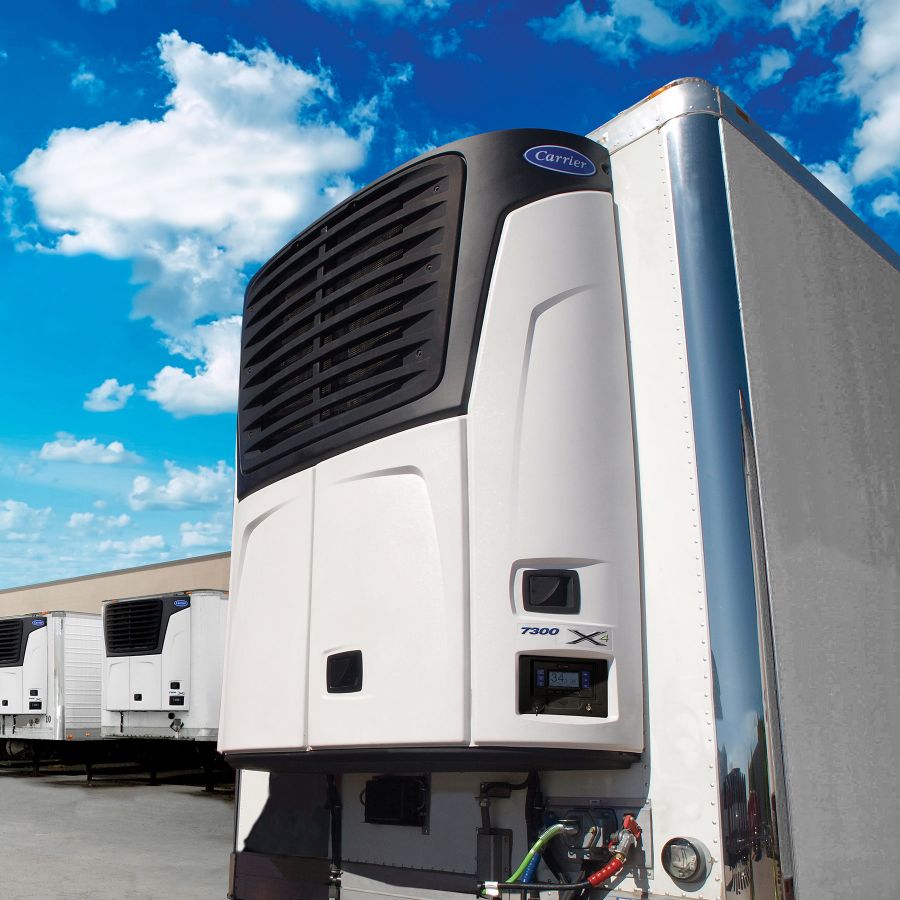
2. EcoFORWARD™ Technology
At the heart of the X4™ 7300’s efficiency is Carrier’s EcoFORWARD™ technology. This suite of advancements optimizes fuel consumption, achieving 35–50% more BTUs of cooling per gallon of fuel compared to earlier models. By integrating high-efficiency components and smart power management, the unit reduces engine run hours, lowers fuel costs, and minimizes greenhouse gas emissions, aligning with modern sustainability goals.Buy 7300 Trailer Refrigeration Unit
3. EPA Tier 4 Compliance
The X4™ 7300 meets the U.S. Environmental Protection Agency’s (EPA) 2013 Tier 4 emissions standards for diesel engines. It features a 2.2-liter, four-cylinder V2203L diesel engine producing 24.8 horsepower at 1,800 RPM, designed for direct injection and equipped with a CAN bus electronic interface. This ensures compliance with environmental regulations while enhancing operational efficiency, making it a future-proof investment for fleets operating in regulated markets.
4. Proven Reliability
Building on the X2™ platform, the X4™ 7300 incorporates high-efficiency components from Carrier’s Vector™ series, known for their durability. The unit weighs approximately 1,610 pounds (dry weight, excluding battery) and is engineered for minimal maintenance. Features like the ESI™ (Extended Service Interval) package—including synthetic multi-stage oil filters, a fuel filter with water separator, and long-life coolant—extend service intervals, reducing downtime and costs.Buy 7300 Trailer Refrigeration Unit
5. TRU-DEMAND™ Energy Efficiency
The X4™ 7300 employs TRU-DEMAND™, a system that optimizes energy use through features like an electronic expansion valve, modulating valve, and a compressor with capacity control (operating at 2, 4, or 6 cylinders). Combined with automatic start/stop functionality and a brazed plate heat exchanger, this technology ensures efficient cooling with minimal fuel waste, particularly during pulldown and steady-state operation.
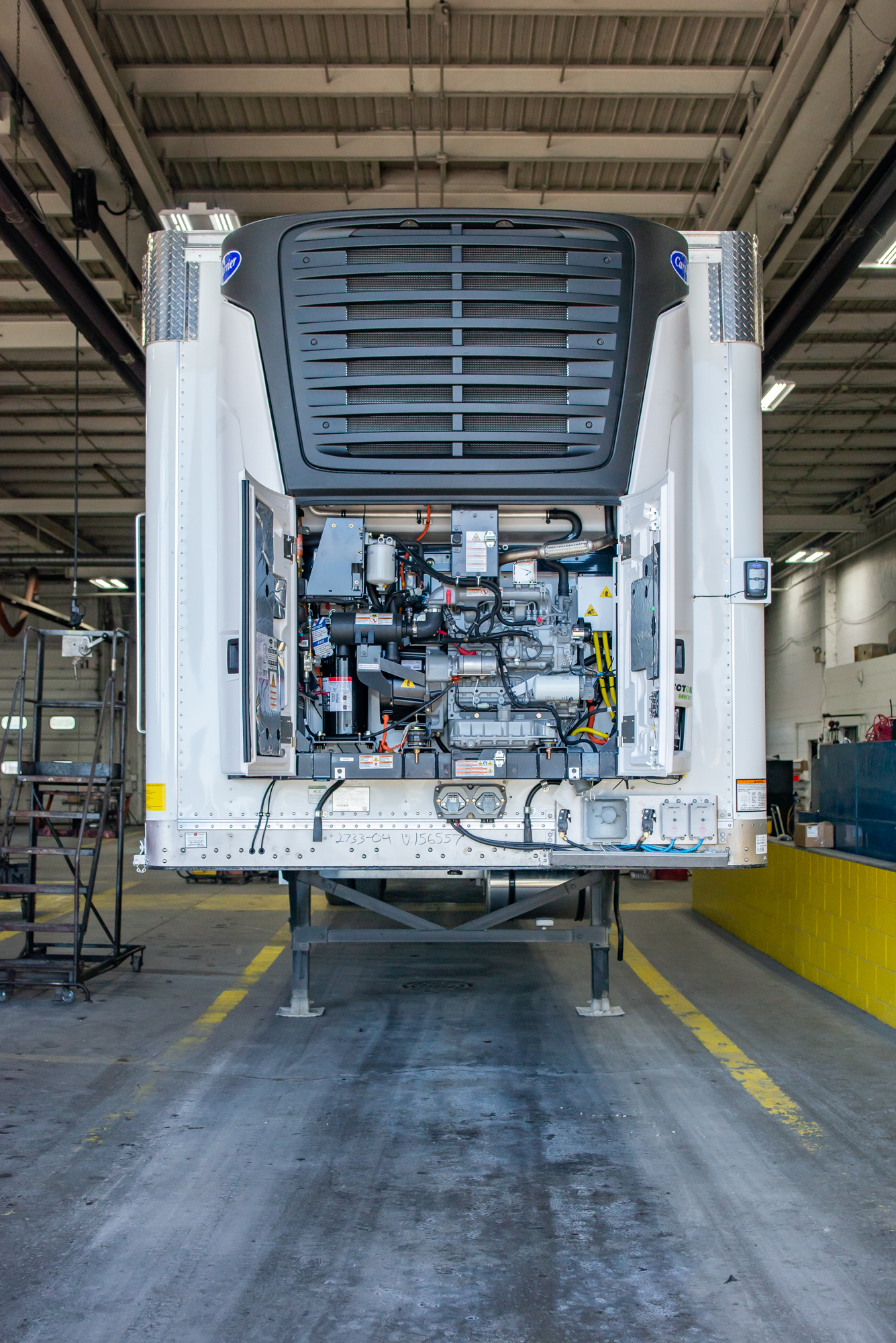
6. APX™ Control System
The unit is equipped with the APX™ control system, a user-friendly interface that enhances operational control. With fewer components than traditional systems, APX™ simplifies maintenance and integrates advanced software for precise temperature management. Features like IntelliSet allow pre-programmed settings for specific cargo types, while Pretrip testing ensures the unit is ready for each load.
Technical Design and Components
The X4™ 7300’s refrigeration system is a sophisticated blend of mechanical and electronic engineering. The refrigeration circuit includes a 05G 41CFM compressor with a 40 cubic-inch displacement, capable of dynamically adjusting capacity. Refrigerant flows through a filter-drier, receiver, and bypass check valve, maintaining efficiency and protecting the system from contaminants. The evaporator delivers a high airflow of 3,050 cubic feet per minute (CFM), ensuring uniform temperature distribution inside the trailer.Buy 7300 Trailer Refrigeration Unit
The unit’s alternator, a 70-amp high-output model, powers auxiliary systems, while the fan clutch maintains optimal cooling with an adjustable air gap. These components are designed to withstand the rigors of long-haul transportation, with rigorous testing for shock and vibration resistance, particularly in the rail-specific 7300R variant.Buy 7300 Trailer Refrigeration Unit
Applications and Benefits
Applications
The X4™ 7300 is versatile, catering to a range of industries:
•Food and Beverage: Ideal for transporting fresh produce, dairy, meat, and frozen goods, ensuring compliance with food safety standards.
•Pharmaceuticals: Maintains strict temperature control for vaccines, medicines, and biologics, critical in cold chain logistics.
•Floral Industry: Preserves the freshness of cut flowers during transit, a niche but demanding application.
Benefits
•Cost Savings: Reduced fuel consumption (up to 22% less over a range of conditions) and lower maintenance needs translate to a lower total cost of ownership.
•Environmental Impact: Compliance with Tier 4 standards and improved fuel efficiency reduce the carbon footprint of refrigerated transport.
•Operational Efficiency: Faster pulldown (up to 20% quicker than predecessors) and reliable performance minimize delays and spoilage risks.
•Driver Comfort: Quieter operation compared to some older models enhances the driving experience, though it’s louder than the X2™ 2500 series.
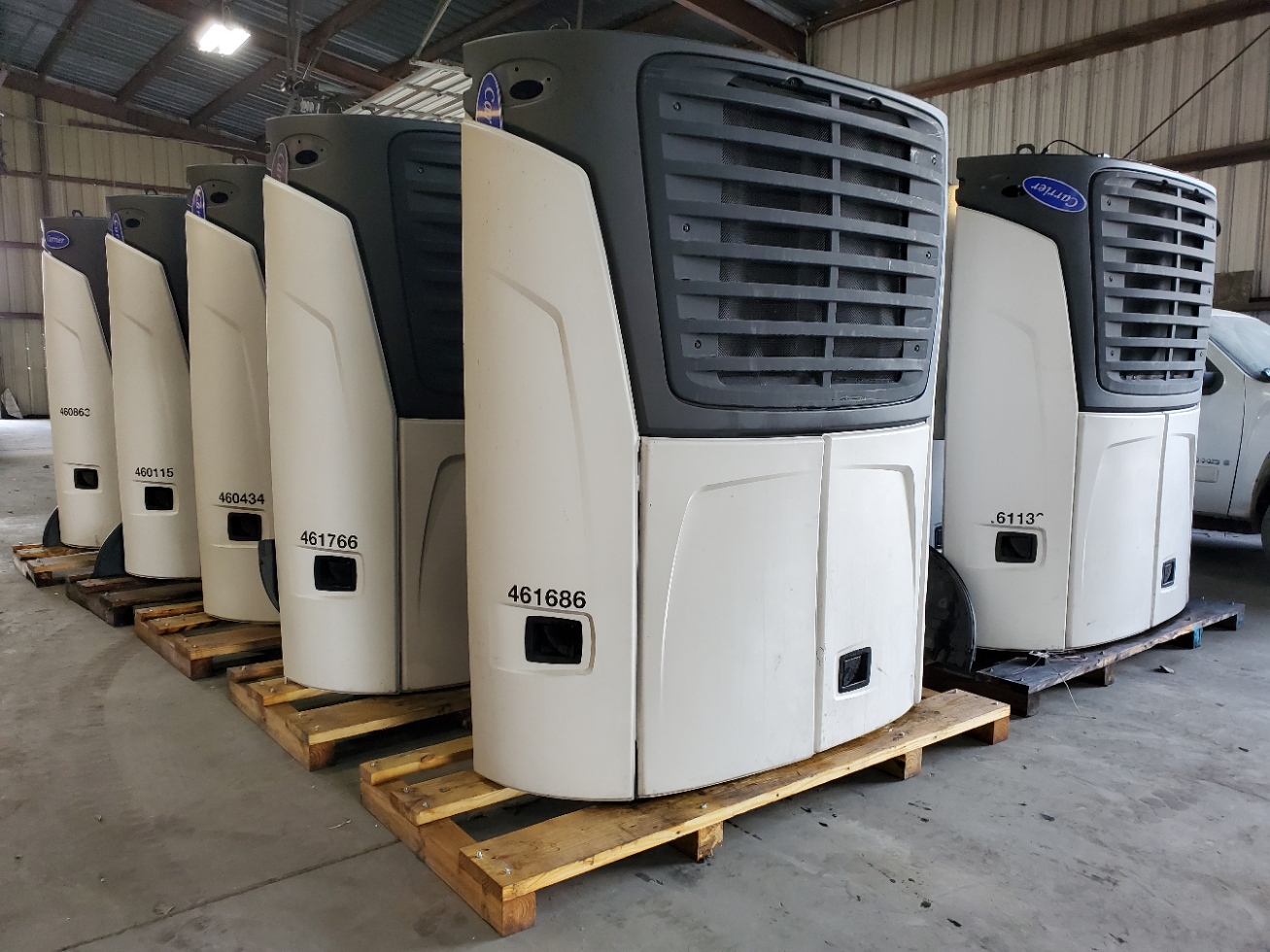
Comparison with Other Models
When compared to its predecessor, the X2™ 2500, the X4™ 7300 offers similar maximum BTUs (66,000) but with significant improvements in fuel efficiency and emissions compliance. The X4™ 7500, a sibling model, bumps capacity to 68,000 BTUs, catering to even more extreme needs. Unlike the all-electric Vector™ series, the X4™ 7300 relies on a belt-driven diesel system, striking a balance between cost and performance for traditional fleets.
Market Reception and User Insights
Feedback from trucking forums and industry sources highlights the X4™ 7300’s strengths. Operators appreciate its fuel efficiency and reliability, though some note it’s noisier than the X2™ 2500. Its lighter weight (30 pounds less than prior models) and 13% reduction compared to competitors also make it a favorite for optimizing payload capacity.Buy 7300 Trailer Refrigeration Unit
Future Outlook
As regulations tighten and sustainability becomes a priority, the X4™ 7300’s design positions it well for the future. Carrier’s ongoing innovations—like the potential integration of refrigerants with lower global warming potential (e.g., R-452A, as seen in the X4™ 7500)—suggest that the X4™ series will continue evolving to meet industry demands.
The X4™ 7300 Trailer Refrigeration Unit exemplifies Carrier Transicold’s commitment to blending performance, efficiency, and reliability. With its high cooling capacity, EcoFORWARD™ technology, and EPA Tier 4 compliance, it’s a top choice for fleets needing robust refrigeration without compromising on cost or environmental responsibility. For operators hauling perishables across the country, the X4™ 7300 delivers not just cold air, but confidence.
Technical Deep Dive into the X4™ 7300
Refrigeration System Mechanics
The refrigeration cycle of the X4™ 7300 is a marvel of engineering precision. At its core is the 05G compressor, a six-cylinder, 41 cubic feet per minute (CFM) unit with a displacement of 40 cubic inches. This compressor’s ability to shift between 2, 4, or 6-cylinder operation via TRU-DEMAND™ capacity control allows it to adapt to varying thermal loads. During initial pulldown, all six cylinders engage to rapidly lower the trailer’s internal temperature. Once the setpoint is reached, the system scales back, reducing energy draw and wear on components.Buy 7300 Trailer Refrigeration Unit

The refrigerant, typically R-404A (though newer models in the X4™ series are transitioning to R-452A for lower environmental impact), circulates through a high-efficiency brazed plate heat exchanger. This component enhances heat transfer while minimizing refrigerant charge, a nod to both performance and sustainability. An electronic expansion valve (EEV) further optimizes flow, adjusting dynamically based on real-time data from the APX™ control system. The evaporator, with its 3,050 CFM airflow, ensures even cooling across the trailer, preventing hot spots that could compromise cargo integrity.Buy 7300 Trailer Refrigeration Unit
Engine and Powertrain
The 2.2-liter V2203L diesel engine is a workhorse tailored for transport refrigeration. Producing 24.8 horsepower at 1,800 RPM, it’s paired with a direct-injection system and electronic controls compliant with EPA Tier 4 standards. The engine’s CAN bus interface integrates seamlessly with the APX™ system, allowing diagnostics and performance monitoring in real time. A 70-amp alternator supports auxiliary power needs, while a high-output fan clutch maintains optimal airflow through the condenser, even in high ambient temperatures.
The ESI™ (Extended Service Interval) package is a standout feature here. It includes a synthetic multi-stage oil filter, a fuel filter with water separator, and long-life coolant, pushing service intervals to 3,000 hours or more under optimal conditions. This reduces maintenance frequency by up to 50% compared to older models, a significant advantage for fleets operating on tight schedules.Buy 7300 Trailer Refrigeration Unit
Structural Design
Weighing 1,610 pounds (dry, without battery), the X4™ 7300 is lighter than many competitors, thanks to its streamlined design and high-strength materials. The frame is engineered for durability, with corrosion-resistant coatings to withstand road salt and humidity. The unit’s footprint is compact, mounting easily on the front of a standard 53-foot trailer, and its aerodynamic shape reduces drag, contributing to overall fuel savings.

Operational Scenarios: Real-World Performance
Long-Haul Food Transport
Imagine a refrigerated trailer loaded with 40,000 pounds of frozen chicken, departing a processing plant in Arkansas bound for a distribution center in California. Ambient temperatures hover around 95°F, and the cargo must stay below 0°F. The X4™ 7300 kicks into high gear, achieving pulldown in under an hour—20% faster than the X2™ 2500. Once stabilized, TRU-DEMAND™ shifts the compressor to four-cylinder mode, sipping fuel at a rate 22% lower than older units. Over the 2,000-mile journey, this efficiency saves approximately 10–15 gallons of diesel, a tangible cost reduction for the fleet operator.Buy 7300 Trailer Refrigeration Unit
Pharmaceutical Cold Chain
Now consider a shipment of temperature-sensitive vaccines requiring a steady 35°F. The APX™ system’s IntelliSet feature allows the driver to select a pre-programmed profile for pharmaceuticals, ensuring compliance with FDA regulations. The unit’s precise control (±0.5°F accuracy) and data logging capability provide auditable proof of temperature consistency, critical for regulatory audits. Even during a summer heatwave, the 66,000 BTU capacity keeps the cargo safe, with the EcoFORWARD™ tech minimizing emissions—a bonus for a pharmaceutical company touting sustainability.
Extreme Conditions: Rail Variant (7300R)
The X4™ 7300R, designed for rail intermodal transport, faces unique challenges like prolonged idling and vibration. Its reinforced components and enhanced shock resistance ensure reliability during cross-country rail hauls. For instance, a load of ice cream moving from Chicago to Los Angeles via rail benefits from the unit’s ability to maintain -20°F, even with minimal airflow during stationary periods.Buy 7300 Trailer Refrigeration Unit
Industry Context and Competitive Landscape
The Evolution of Trailer Refrigeration
Trailer refrigeration has come a long way since the first ice-based systems of the early 20th century. Diesel-powered units like the X4™ 7300 emerged in the mid-20th century, evolving from basic cooling to sophisticated climate control. Carrier Transicold, founded in 1902 by Willis Carrier (the inventor of modern air conditioning), has been at the forefront, with the X4™ series marking a pinnacle of this progression. The 7300 builds on decades of innovation, responding to modern pressures like fuel costs, emissions regulations, and the rise of e-commerce-driven cold chains.
Competitors and Differentiation
The X4™ 7300 competes with units like Thermo King’s Precedent™ S-600 and S-700. While Thermo King offers comparable capacity (around 60,000–65,000 BTUs), the X4™ 7300 edges out in fuel efficiency and service intervals. Thermo King’s SmartPower™ electric standby option appeals to hybrid fleets, an area where Carrier’s Vector™ series (not the X4™) competes more directly. The X4™ 7300’s strength lies in its diesel-only simplicity and lower upfront cost, appealing to traditional operators prioritizing reliability over electrification.Buy 7300 Trailer Refrigeration Unit
Market Trends
The refrigerated transport market is growing, driven by demand for fresh and frozen goods. A 2023 report projected the global cold chain market to reach $400 billion by 2030, with North America leading due to its vast highway network. The X4™ 7300 aligns with trends toward sustainability (Tier 4 compliance) and automation (APX™ controls), though future iterations may need to integrate electric or hybrid power to stay competitive as zero-emission mandates loom.
User Experiences and Feedback
Operator Perspectives
Posts from trucking forums like TheTruckersReport.com praise the X4™ 7300’s fuel savings and uptime. One driver noted, “It’s not whisper-quiet like the Vector, but it gets the job done and doesn’t guzzle fuel.” Maintenance crews appreciate the ESI™ package, with one technician reporting a 40% drop in shop visits compared to older X2™ units. However, noise levels—higher than the X2™ 2500—draw occasional criticism from drivers seeking a quieter ride.Buy 7300 Trailer Refrigeration Unit
Fleet Manager Insights
Fleet managers highlight the unit’s ROI. A mid-sized operator calculated that the X4™ 7300’s efficiency offset its $25,000–$30,000 price tag within two years, thanks to fuel and maintenance savings. Its lighter weight also allows an extra 30–50 pounds of payload, a small but meaningful edge in maximizing revenue per trip.Buy 7300 Trailer Refrigeration Unit
Environmental and Regulatory Considerations
Emissions and Sustainability
The X4™ 7300’s Tier 4-compliant engine reduces particulate matter and NOx emissions by up to 90% compared to Tier 3 units. While not zero-emission, its EcoFORWARD™ tech cuts CO2 output indirectly through fuel efficiency. Carrier’s exploration of R-452A (with a 45% lower global warming potential than R-404A) signals a shift toward greener refrigerants, though the 7300 still ships with R-404A as standard.
Regulatory Compliance
Beyond EPA standards, the unit meets California Air Resources Board (CARB) requirements for transport refrigeration units, a key consideration for West Coast operators. Its noise profile also complies with local ordinances, though it’s not the quietest in Carrier’s lineup.Buy 7300 Trailer Refrigeration Unit
Future Innovations and Potential Upgrades
Looking ahead, the X4™ 7300 could evolve in several ways:
•Hybrid Integration: Adding an electric standby option, like Thermo King’s, could broaden its appeal.
•Smart Connectivity: Enhanced telematics via the APX™ system could offer real-time fleet monitoring, integrating with IoT platforms.
•Refrigerant Shift: Full adoption of R-452A or even CO2-based systems could future-proof it against tightening environmental rules.
Conclusion (Interim)
The X4™ 7300 Trailer Refrigeration Unit stands as a benchmark in diesel-powered refrigeration, balancing high performance with practical efficiency. Its technical prowess, real-world reliability, and adaptability make it a linchpin for modern cold chain logistics. Yet, as the industry pivots toward electrification and stricter sustainability goals, its next iteration may need to embrace bolder innovations.Buy 7300 Trailer Refrigeration Unit
Case Studies: Buy 7300 Trailer Refrigeration Unit
Case Study 1: Midwest Grocery Chain
A regional grocery chain in the Midwest deployed a fleet of 20 trailers equipped with X4™ 7300 units to transport fresh produce and frozen goods across a 500-mile radius. The challenge was maintaining consistent temperatures (35°F for produce, -10°F for frozen items) during summer heatwaves, with ambient temperatures reaching 100°F. The fleet manager reported that the X4™ 7300’s 66,000 BTU capacity achieved pulldown 25% faster than their previous X2™ 2100 units, reducing spoilage rates from 2% to under 0.5%. Fuel consumption dropped by 18% per trip, saving $12,000 annually across the fleet. The APX™ system’s IntelliSet feature streamlined operations by allowing drivers to switch between cargo profiles with a single button, cutting setup time by 10 minutes per load.Buy 7300 Trailer Refrigeration Unit
Case Study 2: Pharmaceutical Distributor
A national pharmaceutical distributor used the X4™ 7300 to haul temperature-sensitive biologics from a manufacturing facility in New Jersey to warehouses in Texas. Regulatory compliance required maintaining 36°F ±1°F, with continuous monitoring. The unit’s precision control and data logging met FDA standards effortlessly, while its 3,050 CFM airflow ensured no temperature gradients across the 53-foot trailer. During a 1,800-mile run with external temperatures at 90°F, the EcoFORWARD™ technology reduced fuel use by 20% compared to a competitor’s unit, saving $150 per trip. The distributor noted zero compliance violations over a year, attributing success to the X4™ 7300’s reliability.
Case Study 3: Intermodal Rail Transport (7300R)
A logistics firm tested the X4™ 7300R on a rail route from Seattle to Miami, transporting frozen seafood at -20°F. The rail variant’s reinforced design withstood 72 hours of vibration and idling, maintaining temperature within ±0.5°F. Compared to a legacy unit, the 7300R cut diesel consumption by 15%, despite longer stationary periods. The firm highlighted the ESI™ package, which extended service intervals to 3,500 hours, reducing maintenance stops by one per year per unit—a $2,000 savings per trailer.Buy 7300 Trailer Refrigeration Unit
Maintenance Guide: Keeping the X4™ 7300 Running
Routine Maintenance Checklist
The X4™ 7300’s design simplifies upkeep, but regular attention ensures peak performance. Here’s a practical guide for operators:
1.Daily Pre-Trip Inspection (10–15 minutes)
•Check engine oil and coolant levels via dipsticks and sight glass.
•Inspect belts and hoses for wear or cracks; the fan clutch should have a 0.1–0.2-inch air gap.
•Run a Pretrip test via the APX™ control panel to verify system readiness.
2.Monthly Checks (1–2 hours)
•Clean the condenser and evaporator coils with compressed air to remove dust and debris, boosting airflow efficiency.
•Test battery voltage (12.6V minimum) and clean terminals; the 70-amp alternator relies on a strong battery.
•Inspect the fuel filter/water separator; drain if water is present.
3.Extended Service Interval (Every 3,000 Hours or 12–18 Months)
•Replace synthetic oil (15W-40 recommended) and multi-stage oil filter.
•Swap the fuel filter and check the water separator’s condition.
•Refill long-life coolant (OAT-based, 50/50 mix) if levels drop below minimum.
Buy 7300 Trailer Refrigeration Unit
Common Issues and Fixes
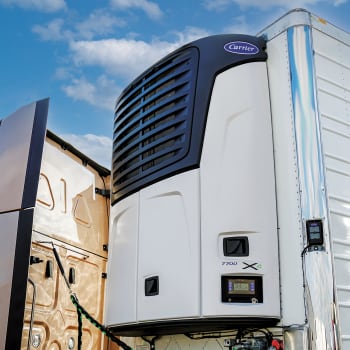
•Reduced Cooling Capacity: Often due to dirty coils or low refrigerant. Clean coils first; if unresolved, a technician should check for leaks (R-404A pressure should be 250–300 psi on the high side at 80°F ambient).
•Engine Overheating: Check coolant levels and fan clutch engagement. A stuck clutch may need replacement ($200–$300).
•APX™ Errors: Codes like “E-10” (sensor fault) require resetting via the control panel or a firmware update from a Carrier dealer.
Pro Tips
•Use Carrier’s eSolutions™ telematics (optional) to monitor maintenance needs remotely, catching issues before they escalate.
•Keep a spare fuel filter and 5 gallons of diesel onboard for remote breakdowns; the V2203L engine is sensitive to fuel quality.
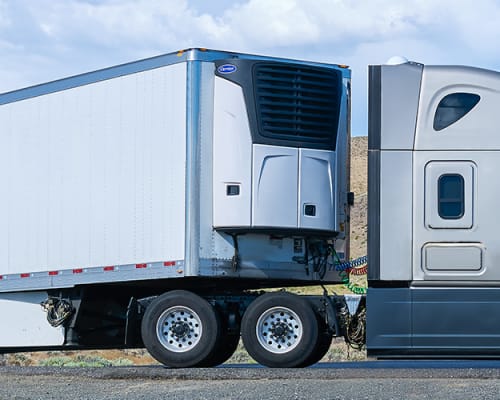








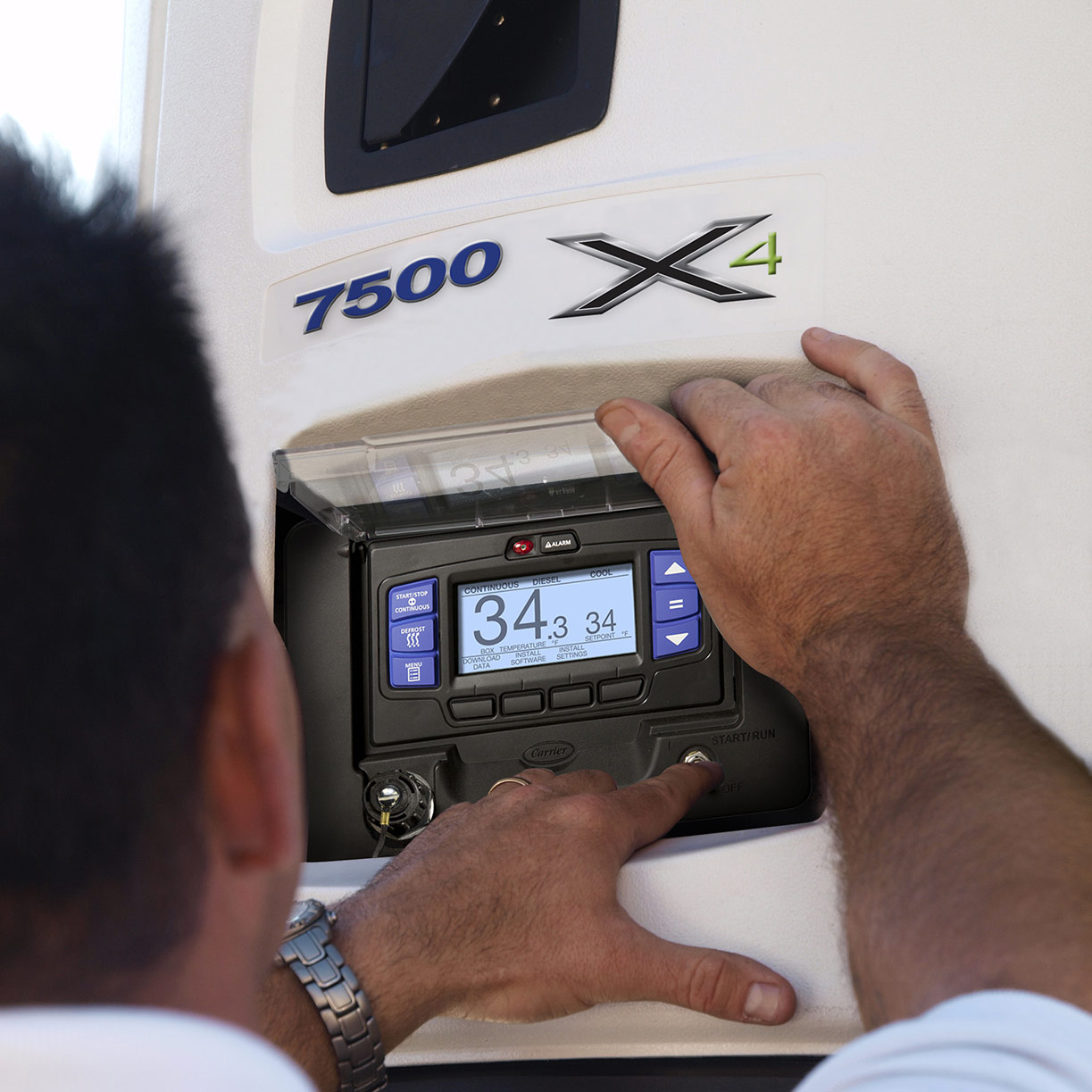

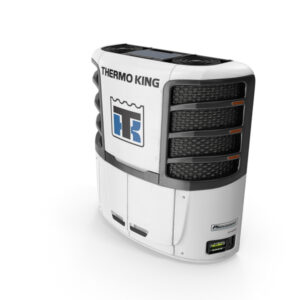
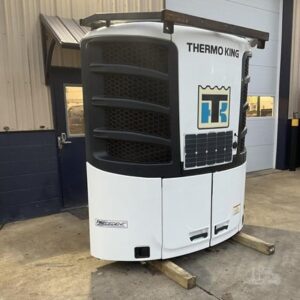
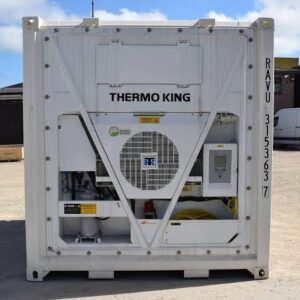
Reviews
There are no reviews yet.